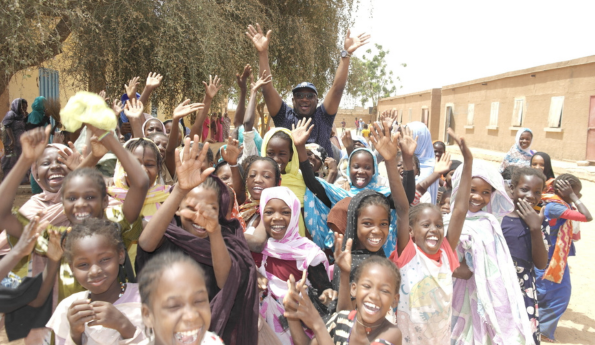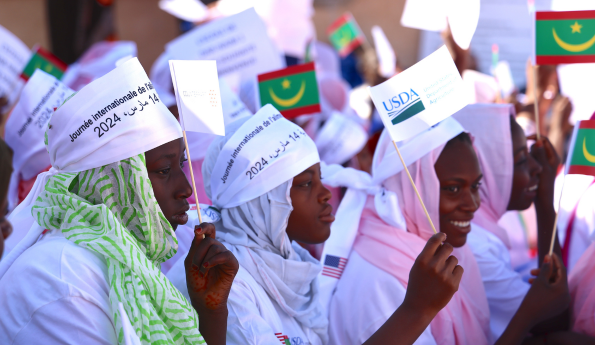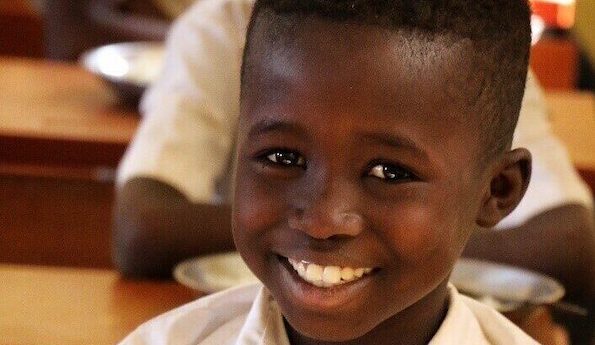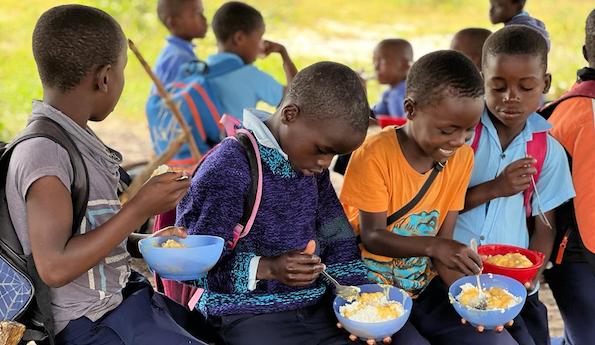Counterpart’s McGovern-Dole Food for Education and Child Nutrition projects, funded by USDA, address both the immediate need to fight hunger and malnutrition and longer-term needs, such as improving school infrastructure, boosting literacy, and improving school governance. We work to strengthen the capacity of local and national stakeholders to lead and maintain school feeding programs long after our programming ends, so children in Mauritania continue to thrive.
To ensure lasting impact of the school feeding programs, Counterpart prioritizes sustainability plans, which are developed with local buy in and support and integrated into programming from the project’s inception. Hosting regular pause and reflect sessions with stakeholders allows us to monitor progress made towards sustainability.

The sustainability workshop drew more than 100 participants who provided recommendations for enhancing the sustainability of the McGovern-Dole project.
Our McGovern-Dole project in Mauritania, “The Future is Ours,” convened more than 100 key stakeholders, including government officials from the United States and Mauritania’s Ministry of Education, as well as local implementing partners ARED, Ecodev, and ONG Actions, to evaluate the progress of the sustainability plan as the project is nearing closure in September 2024. Participants made recommendations to enhance the sustainability of project activities.
The U.S. Ambassador to Mauritania Cynthia Kierscht, the former Minister of Education Mohamed Melaïnine Ould Eyih, and Counterpart Chief of Party Desire Yameogo delivered remarks.

U.S. Ambassador to Mauritania Cynthia Kierscht attended the workshop alongside a host of government officials to lend her support for the school feeding program.
During her speech, Kierscht emphasized the role of the workshop in ensuring local ownership of the program. She discussed the importance of collaboration in designing and implementing the McGovern-Dole program and how it works to strengthen primary education and child nutrition.
“I am looking forward to the results of the workshop,” Kierscht said. “I’d like to discuss them with our teams to strengthen current programming and to improve school feeding initiatives in general.”
The Minister of Education and Reform of Education Systems, Moctar O. Dahi, commended the array of partners involved in the project for their role in strengthening education and reducing hunger. The World Food Programme participated in the event as well as representatives of the private sector and civil society, who are all important partners in sustainability. Their active participation provides hope for the longevity and local ownership of the project, with the potential for the government to gradually take charge of the school feeding.

The sustainability plan applies a holistic approach by involving an array of key stakeholders from the local communities.
Participants proposed ways to better engage parent teacher associations, communes and communities in securing the future of the school feeding program.
Top recommendations include:
- Expanding income-generating activities in local communities
- Setting up support mechanisms to ensure proper management of school meals programs handed over to the government
- Establishing fundraising mechanisms for the private sector
The sessions culminated in the formation of a steering committee that will craft an action plan to address and operationalize these recommendations. As the project draws to a close, Counterpart is committed to supporting the local community to take ownership of the school feeding program.






